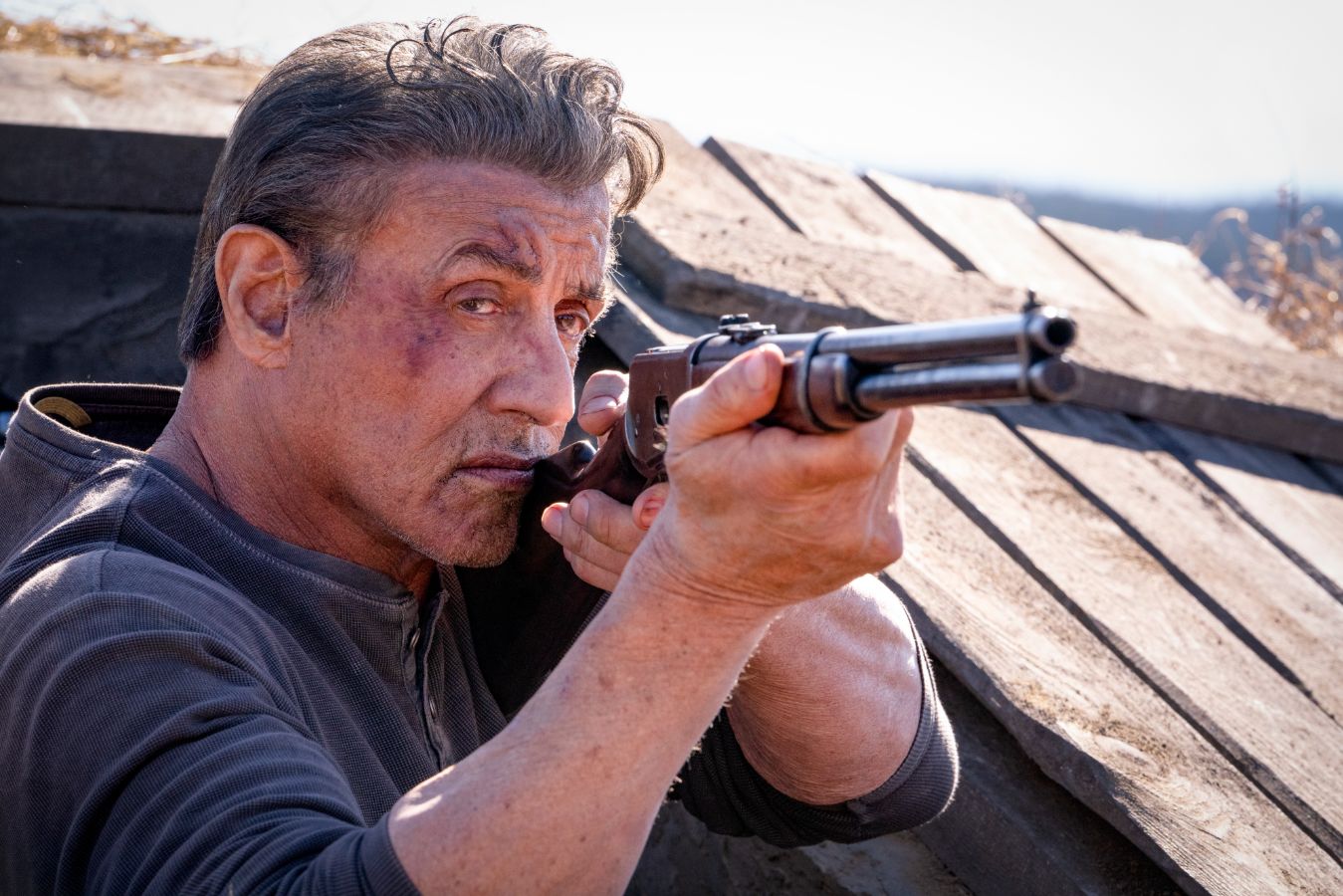Legends don’t retire. They return — when the fight is worth dying for.
After more than four decades, John Rambo’s journey reaches its explosive conclusion in Rambo 7: The Final Stand — a brutal, emotional, and surprisingly reflective farewell to one of cinema’s most iconic anti-heroes. Directed by David Leitch, and produced by Sylvester Stallone himself, this final chapter delivers everything longtime fans expect: carnage, grit, and a blood-stained reckoning with the past.
At 80, Stallone returns with haunting intensity, proving that Rambo doesn’t just fight wars — he becomes them.
Plot Summary: When Peace Refuses to Last
It's been several years since the events of Last Blood. John Rambo, presumed dead, has disappeared deep into the wilderness of the Pacific Northwest. Scarred physically and mentally, he’s finally found a kind of solitude — a quiet life off the grid, surrounded by the ghosts of everyone he couldn’t save.
But war, as always, comes knocking.
When a rogue paramilitary group linked to international trafficking begins abducting Native communities near Rambo’s land — including the granddaughter of an old friend from the Apache reservation — Rambo is pulled back into the fight.
But this time, he’s not just a soldier. He’s a witness to history. A relic of war with nothing left to prove — and no one left to forgive.
What follows is a hunt through mountainous terrain, government cover-ups, tactical guerrilla warfare, and a final confrontation in a booby-trapped sanctuary of his own making. The battleground is primal. Personal. Final.

Sylvester Stallone: Rambo’s Last Rage
Stallone’s performance here is raw and reflective. He’s not playing a superhero. He’s playing a man who’s outlived everyone and everything — but still burns with purpose.
This Rambo doesn’t talk much. He carves. He stalks. He listens. But when the time comes, he unleashes a level of fury so precise, so devastating, that it makes First Blood look almost tame by comparison.
Yet beneath the muscle and mayhem, Stallone gives Rambo something rare in modern action cinema: dignity. He’s a man out of time, out of trust, and out of options. The way Stallone lets that pain settle behind his eyes — before exploding into tactical vengeance — makes the film more than just spectacle.
Themes: Legacy, War, and What’s Left Behind
Rambo 7 is about endings. About what’s left when war is over — and the soldier still breathes.
It confronts the myth of the unstoppable action hero and reframes it as a man worn down by too much survival. In a conversation with a tribal elder, Rambo is told:
"You were trained to survive war. But no one taught you how to live after it."
The film is littered with echoes from past entries — Vietnam, Afghanistan, Burma, Mexico — but it’s never nostalgic. It’s reckoning. Each death weighs heavier. Each trap feels more desperate.
In the end, it’s not about winning. It’s about protecting what little good is left.

Action: Brutal, Tactical, and Unforgiving
The action in Final Stand is sharp, grounded, and harrowingly violent. Gone are the slow-motion hero shots. This is war as it really feels: cold, fast, and merciless.
From bow-and-blade ambushes to night raids through fog-covered forests, every sequence feels earned — brutal choreography with a human cost. One standout scene features Rambo infiltrating a black site using only hand-crafted tools and instinct. It's a masterclass in silent execution.
The final act — a last stand in a burned-out mountain village — is a 25-minute descent into pure, strategic carnage. And yet, it’s never just about body count. It’s about what Rambo is willing to become… to stop others from becoming him.
Supporting Cast: Small, But Strong
Rather than loading the film with cameos or side plots, Final Stand keeps its circle tight:
-
Tantoo Cardinal plays the grieving grandmother of the kidnapped girl, offering wisdom and moral clarity Rambo desperately lacks.
-
Lewis Tan shines as the antagonist — a ruthless mercenary commander trained by shadow governments, a mirror of what Rambo once was.
-
Isabella Star LaBlanc, as the kidnapped teen, brings vulnerability and resilience, reminding us why Rambo still fights — even when everything inside him wants to quit.
Direction & Cinematography: Grit Meets Elegance
David Leitch (known for Atomic Blonde, Bullet Train) balances visceral violence with moments of eerie quiet. Cinematographer Greig Fraser captures the natural world as both enemy and ally — fog-drenched valleys, torchlit caves, and the timeless danger of the woods.
The score by Tyler Bates is mournful and tribal, intercut with echoes of Jerry Goldsmith’s original First Blood theme — tying past and present together in haunting harmony.
The Ending (No Spoilers)
The final scene is raw, shocking, and — somehow — peaceful. Whether Rambo dies or not isn’t the point. What matters is that he finally stops running.It’s not about redemption. It’s about release.

Final Verdict
Rambo: The Final Stand (2026) is a brutal, beautiful goodbye. It respects the myth, honors the man, and gives John Rambo the one thing he’s never had: an ending that feels like it matters.
It’s not just action. It’s legacy. And it hits like a war cry from a dying legend.



-1751442617-q80.webp)
-1751100889-q80.webp)